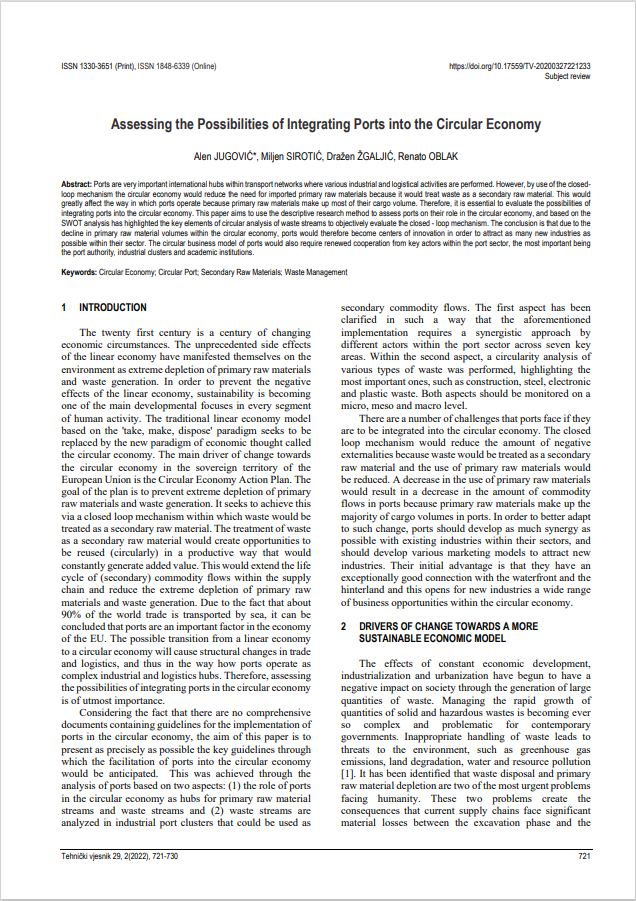Abstract
Ports are very important international hubs within transport networks where various industrial and logistical activities are performed. However, by use of the closedloop mechanism the circular economy would reduce the need for imported primary raw materials because it would treat waste as a secondary raw material. This would greatly affect the way in which ports operate because primary raw materials make up most of their cargo volume. Therefore, it is essential to evaluate the possibilities of integrating ports into the circular economy. This paper aims to use the descriptive research method to assess ports on their role in the circular economy, and based on the SWOT analysis has highlighted the key elements of circular analysis of waste streams to objectively evaluate the closed – loop mechanism. The conclusion is that due to the decline in primary raw material volumes within the circular economy, ports would therefore become centers of innovation in order to attract as many new industries as possible within their sector. The circular business model of ports would also require renewed cooperation from key actors within the port sector, the most important being the port authority, industrial clusters and academic institutions.
